In the proposal to build a draft Law on Personal Income Tax (replacement) sent to ministries, branches, localities and people for comments, the Ministry of Finance proposed to keep the regulation on exemption of personal income tax (PIT) for interest on savings deposits.
The information was just announced by the Ministry of Finance on the evening of February 20. The Ministry of Finance said that the current Personal Income Tax Law stipulates tax exemption for income from interest on deposits at credit institutions, interest from life insurance contracts, interest on government bonds, pensions, etc.
Regulations on exemption of personal income tax on income from interest on deposits at credit institutions aim to encourage individuals who do not have the need to directly invest in production and business to deposit savings through banks (an important capital mobilization channel for the economy, also a welfare policy for those who are unable to work (retirees, disabled people...) who have idle money to deposit in banks to receive interest).
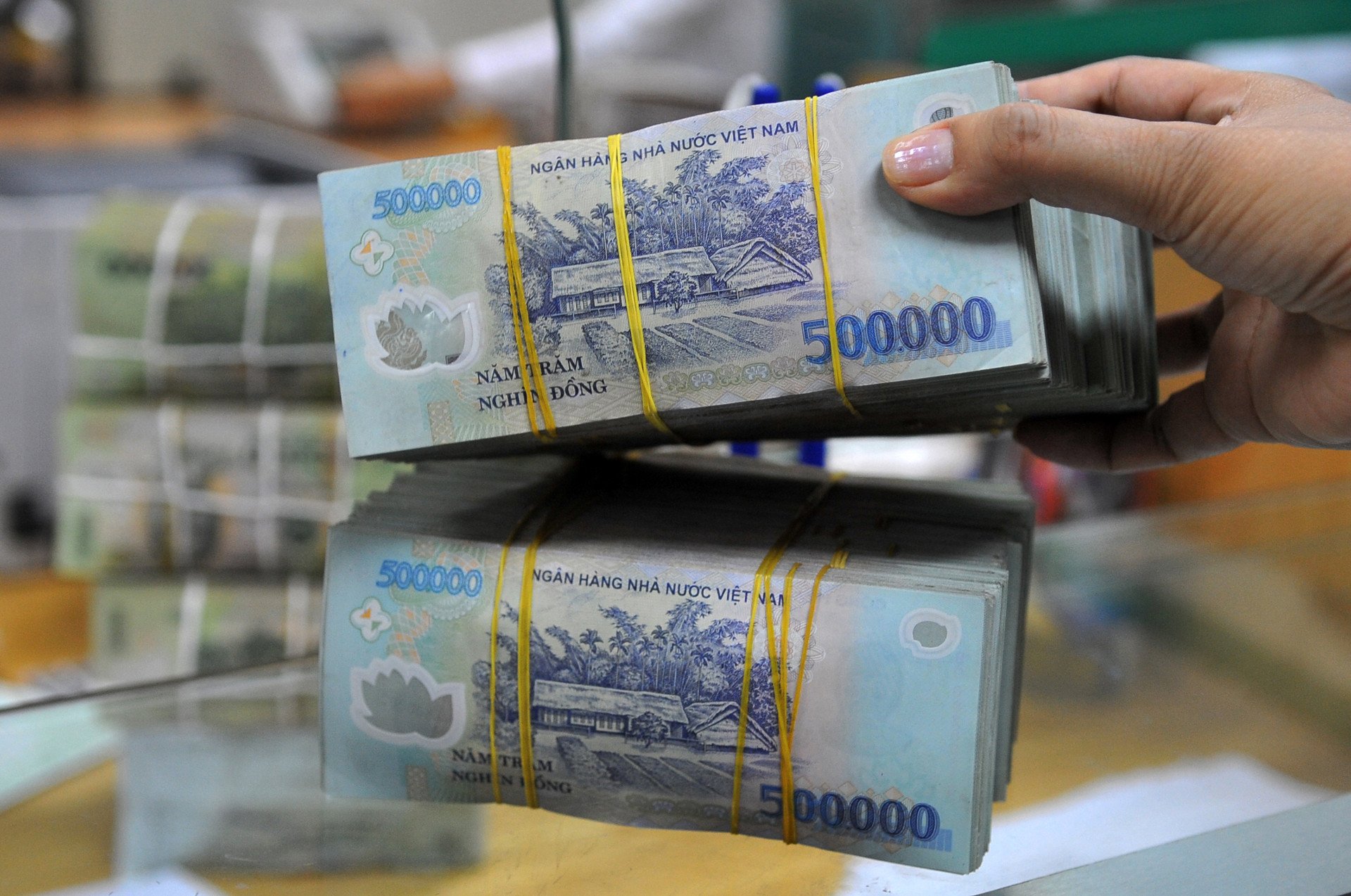
Previously, in the draft proposal to develop a draft law on Personal Income Tax (replacement) sent to the Government, the Ministry of Finance proposed to review and add other income groups to the regulations on taxable income (assigning the Government to specify details to suit the actual situation).
International experience is referred to countries such as Thailand, China, and South Korea all impose personal income tax on income from bank interest.
Commenting on the draft, Can Tho City People's Committee proposed to impose personal income tax on savings interest.
Many people objected to this proposal of the People's Committee of Can Tho City.
It is known that, in performing the tasks assigned by the Prime Minister, the Ministry of Finance has reviewed and evaluated the Law on Personal Income Tax in general and studied and prepared a dossier to propose the development of a draft Law on Personal Income Tax (replacement) to report to the Government, the National Assembly Standing Committee, and the National Assembly for consideration and amendment according to the National Assembly's Law-making Program, ensuring conformity with Vietnam's socio-economic conditions, as well as international practices.
On February 12, the Ministry of Justice held a meeting to review the proposal to develop a Law on Personal Income Tax (replacement).
After receiving written comments from the Ministry of Justice, the Ministry of Finance will complete the dossier proposing the development of the draft Law on Personal Income Tax (replacement) to submit to the Government for consideration and decision before reporting to the National Assembly Standing Committee and the National Assembly.
The proposal to develop the draft Law on Personal Income Tax (replacement) is expected to be reported to the Government to report to the National Assembly to propose overall amendments to regulations related to current personal income tax policies with 7 policy groups.
Many contents, once approved by competent authorities, will contribute to reducing tax obligations for taxpayers, ensuring compliance with the direction of reforming the tax policy system in general and personal income tax in particular, as determined in the documents and resolutions of the Party and State.
Specifically: Adjusting the increase in family deductions for taxpayers in accordance with changes in living standards, price indexes and macroeconomic indicators in the recent period and forecasts for the coming period;
Amending and supplementing the deductible charitable and humanitarian contributions as well as other specific deductions when determining taxable income to institutionalize the policies of the Party and State in promoting the development of areas such as healthcare and education;
Adjust tax rates as well as income gaps in tax brackets of the Progressive Tax Schedule; supplement regulations on tax exemption and reduction to implement the Party and State's policies and orientations for a number of priority areas, on attracting high-quality human resources for socio-economic development...
Talking to VietNamNet reporter from the perspective of a tax expert, Ms. Le Thi Thuy, CEO of Bach Khoa Consulting Services Company Limited, said that calculating personal income tax on savings interest at the present time is not suitable for the current economic situation of Vietnam as well as the management policies to attract capital flows. Ms. Thuy explained that most people currently save money because they do not have a more suitable investment method. People's savings are currently quite large. If they are taxed on personal income tax, depositors will consider withdrawing money from the banking system, affecting the cash flow management of the management agency. Looking more broadly, when people take money home, if they do not consider carefully or make wrong, ineffective investment decisions, it will lead to losses or total loss. The bigger consequences can drag the economy down. In developed countries, people are very limited in saving money. They want money to be circulated in production and business activities as much as possible. Therefore, they consider savings as an investment for personal income tax purposes. However, with the current situation in Vietnam, savings cannot be considered as an investment that can generate profits. In fact, many investment channels are not really sustainable and effective, so people choose to save as a channel to "hide money", to compensate for inflation. Savings come from many different sources. It could be previously accumulated funds that have not yet been taxed. Or, the depositor could be a high-income earner with multiple cash flows and different types of taxes. Therefore, calculating personal income tax on savings interest would be a solution to promote money circulation for stable economic development. According to Ms. Thuy, in the future, if Vietnam imposes personal income tax on savings interest, it should be applied to deposits of VND1 billion or more. Because the average savings interest rate in Vietnam is currently about 5%/year, meaning that if you deposit VND1 billion after 1 year, you will earn about VND50 million, divided by an average of just over VND4 million per month. This amount is equivalent to the current family deduction for 1 dependent. |
Source: https://vietnamnet.vn/bo-tai-chinh-de-xuat-tiep-tuc-mien-thue-tncn-doi-voi-tien-lai-gui-tiet-kiem-2373463.html




![[Photo] Prime Minister Pham Minh Chinh chairs conference on anti-smuggling, trade fraud, and counterfeit goods](https://vphoto.vietnam.vn/thumb/1200x675/vietnam/resource/IMAGE/2025/5/14/6cd67667e99e4248b7d4f587fd21e37c)



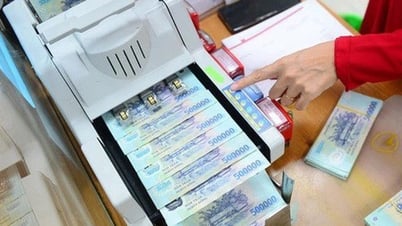

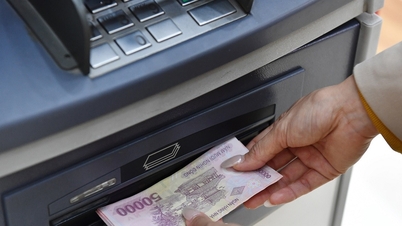












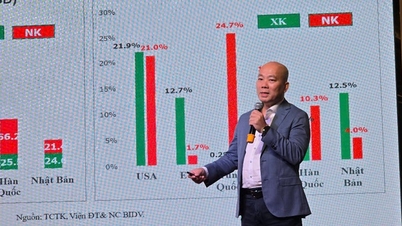











































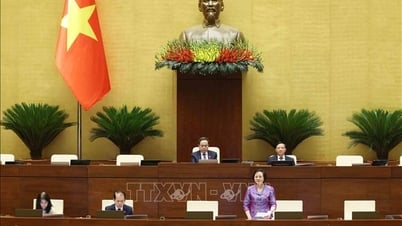


































Comment (0)